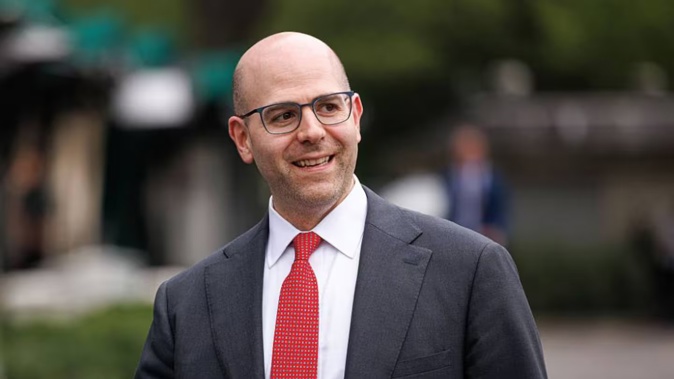
The United States Senate today confirmed White House economic adviser Stephen Miran to a key role at the Federal Reserve, allowing him to join the independent central bank while remaining in the Trump Administration.
The Senate narrowly voted 48-to-47 to confirm Miran, placing a sitting Administration official inside an institution designed to operate independently from the White House.
The move gives President Donald Trump a loyalist on the seven-member Fed board as he moves to reshape the central bank. It’s the first time in 90 years that a sitting White House official will have a role in setting monetary policy.
Racing against this week’s Fed policy meeting, senators moved quickly to confirm Miran, who said he would step away without pay from his role as chair of the White House Council of Economic Advisers but not resign.
He is expected to take part in the Fed gathering, where officials are likely to cut interest rates for the first time this year to bolster a weakening labour market.
Senator Lisa Murkowski of Alaska was the only Republican who voted against confirming Miran. The vote was otherwise along party lines.
Traditionally, Fed governors serve 14-year terms, but Miran was nominated to fill a partial term created by the abrupt departure last month of Adriana Kugler, a Biden appointee.
Kugler resigned without a stated reason, about six months before the end of her board term in early 2026. Miran’s leave of absence would avoid the need for Senate confirmation should he return to the White House next year, though he can remain at the Fed until a successor is confirmed.
Miran’s plan to retain his White House role while serving on the Fed directly contradicts his own previous criticism of the revolving door between the central bank and the executive branch.
In a Manhattan Institute paper last year, he argued that Fed board members should be more insulated from political influence and called for prohibiting them from serving in the executive branch for four years after their Fed terms end.
It also marks a sea change among Senate Republicans, who generally moved to shield the Fed from Trump’s influence during his first term. Several individuals Trump had nominated or considered for the Fed during his first term, such as the late businessman Herman Cain and conservative pundit Stephen Moore, had to withdraw over Republican objections.
Democratic lawmakers raised concerns about Miran’s dual roles at a hearing this month, during which Senator Chris Van Hollen (D-Maryland) asked Miran whether the President would retain him as chairman of the Council of Economic Advisers if his Fed votes were to diverge from the White House’s wishes.
“I do not know the inside of anyone else’s mind,” Miran said. “What I can tell you is that if I am confirmed in the Federal Reserve, I will act independently based on my own independent analysis of the economy and economic policy.”
Some Senate Republicans said they were not concerned about how independent Miran would be after speaking with him.

Democratic lawmakers raised concerns about Miran’s dual roles at a hearing this month. Photo / Getty Images
“If he were to be nominated for a longer term, I would expect him to sever ties with his current employer, whoever that might be,” said Senator Mike Rounds (R-South Dakota). “But for this short-term period of time, I think he’ll be fine.”
Senator Thom Tillis (R-North Carolina) said that he was not convinced that Miran would be independent – but that he didn’t see it as a problem because Miran’s term would officially only last for a few months.
“I don’t think he’s going to be independent,” Tillis said. “I mean, he basically said that he’d go back and work for the president again. So he’s obviously going to be carrying the banner of the White House.
“I don’t have a problem with a voice of the White House being” on the board, Tillis added.
Miran’s position is unprecedented for the modern Fed. Since the mid-1930s, no administration has had an office holder voting on monetary policy decisions. Before then, the treasury secretary was a member of the Fed board, but monetary policy decisions were not controlled centrally the way they are today.
While at the White House, Miran has played a central role in implementing the Trump Administration’s economic and trade agenda.
He also has been a critic of a strong dollar. In a 2024 paper, Miran argued that the dollar has been persistently overvalued, making it difficult for the US to trade on level terms with other countries.
As chief of the Council of Economic Advisers, Miran dismissed concerns that Trump’s tariffs will stoke inflation. “There’s no reason in the data to worry about inflation,” Miran told the Washington Post in an interview in June, noting that the President began imposing new tariffs immediately after taking office.
More recently, Miran joined other Administration officials in celebrating a string of trade deals and new tariffs as a sign that the uncertainty weighing on hiring and investment was beginning to lift.
Trump has made it clear he wants a central bank more responsive to his political agenda, pressing for steep rate cuts to ease the cost of financing swelling deficits and exploring nominees seen as loyal to him.
Take your Radio, Podcasts and Music with you









